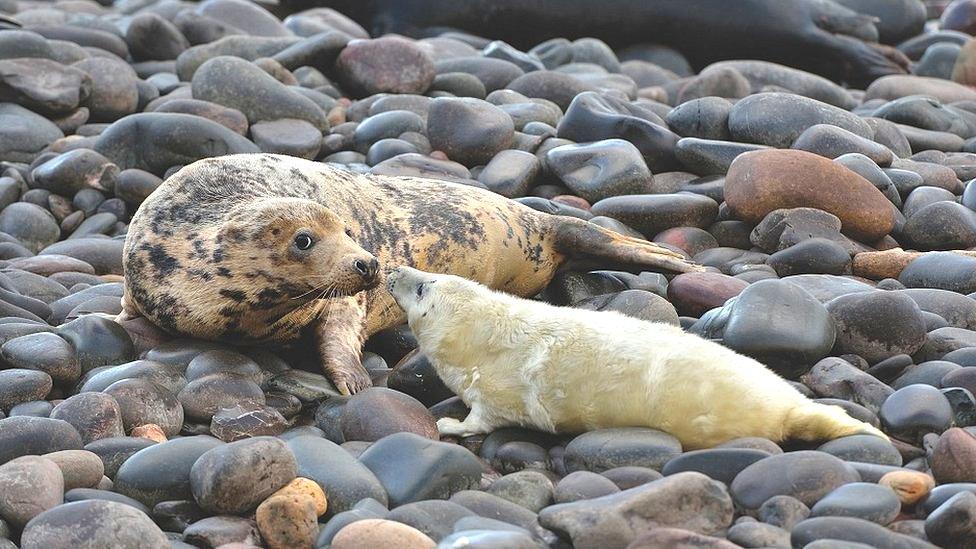Turtle Tally recovering after being stranded on beach
- Published
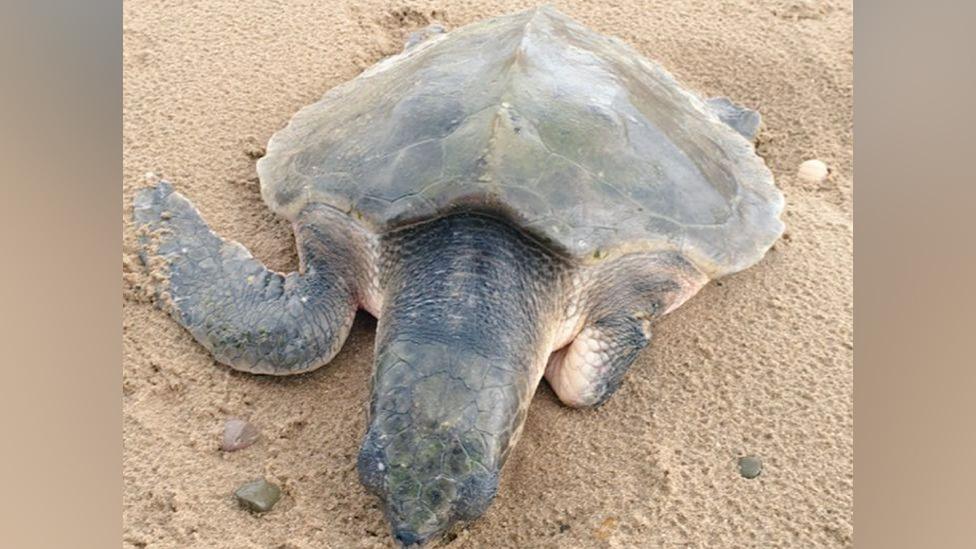
Tally the turtle was washed up on the Welsh coast after strong winds from Storm Arwen
One of the world's rarest turtles is beginning to show signs of recovery after washing up on the Welsh coast.
The Kemp's Ridley sea turtle has been named Tally by Anglesey Sea Zoo, where it is being nursed back to health.
On Sunday Tally was found on Talacre beach, Flintshire, 4,000 miles away from its usual Gulf of Mexico home.
After being rehabilitated Anglesey Sea Zoo hopes Tally can be flown back to the warm waters of Mexico.
The zoo has reported that Tally is "stable" and "showing small signs of recovery" although its condition remains critical.
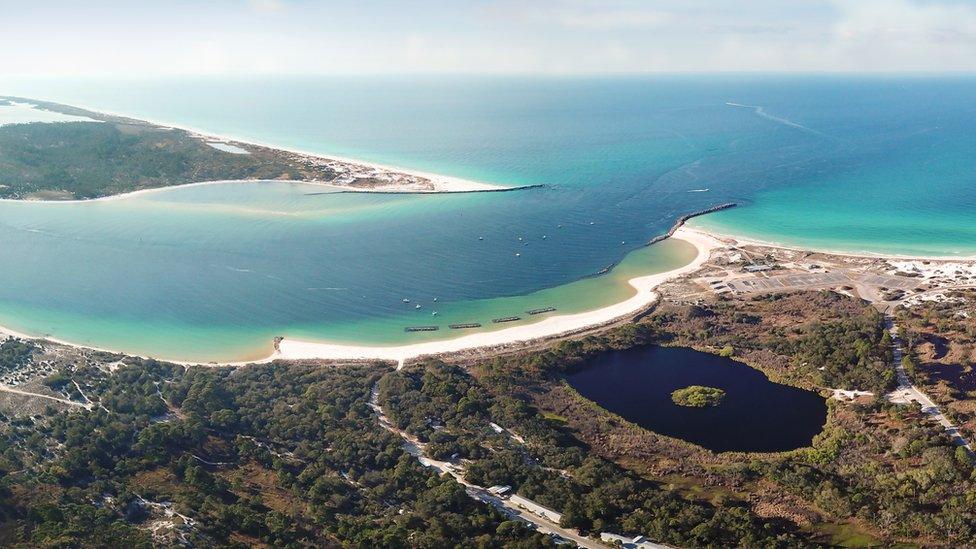
Tallys usualy home around the Gulf of Mexico has water temperatures of up to 30C
Kemp's Ridley turtles are the world's rarest species of turtle and are critically endangered, having almost gone extinct tin the 1980s.
A purpose built incubator has been build to gradually bring Tally up to its natural temperature, after suffering "cold-shock" on the long journey across the Atlantic.
Kemps Ridley turtles are more commonly found in temperatures of 25-30C (77-86F), and at this time of year the sea temperatures around Wales are only about 8C (46.4F).
"The whole team would like to thank everyone for the well wishes and encouragement we are receiving for Tally to pull through," said Frankie Hobro, director and owner of the Anglesey Sea Zoo.
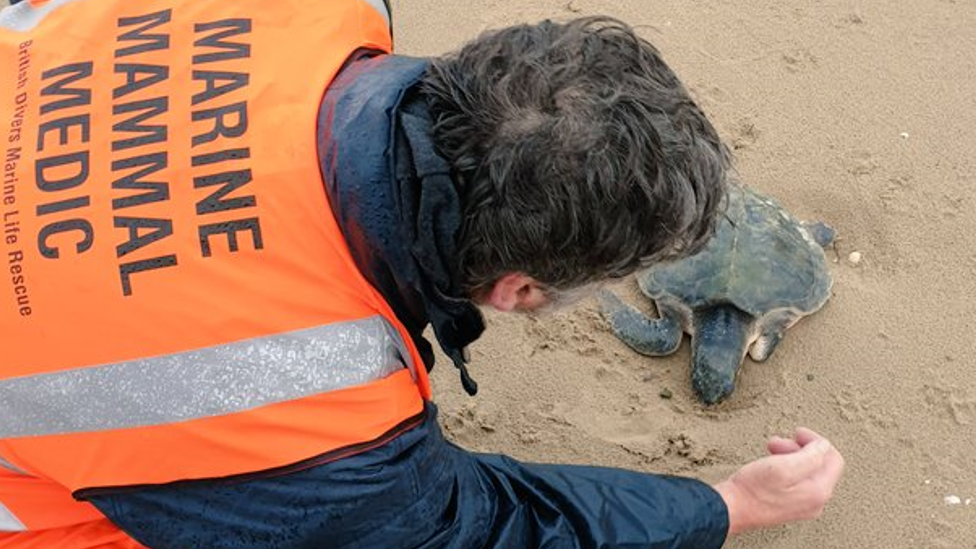
Tally was found by Ashley and Samantha James on Talacre beach after their border collie Teddy "started making a fuss" over something
Ms Hobro has said without the quick actions of those that found Tally on Sunday the turtle would "almost certainly have died".
"Our staff are working hard to rehabilitate Tally, and we hope if he or she continues to recover that it can be flown back to Mexico.
"Tally is not on public display at the Sea Zoo, it will continue to be cared for behind the scenes in the specialised and controlled environment which it needs whilst being treated and rehabilitated."
"Should it survive, we would be delighted to see it eventually returned to the wild where it belongs," added Ms Hobro.
- Published30 November 2021
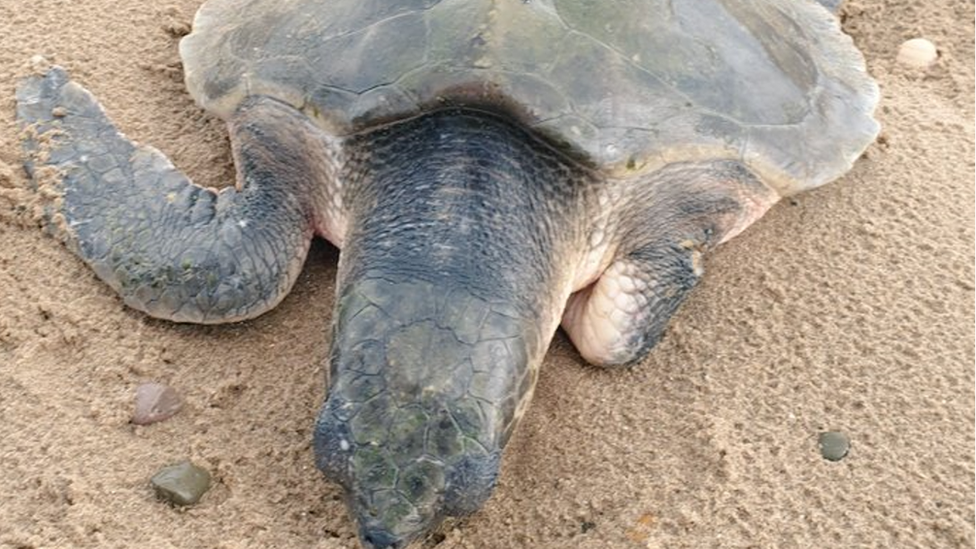
- Published30 November 2021
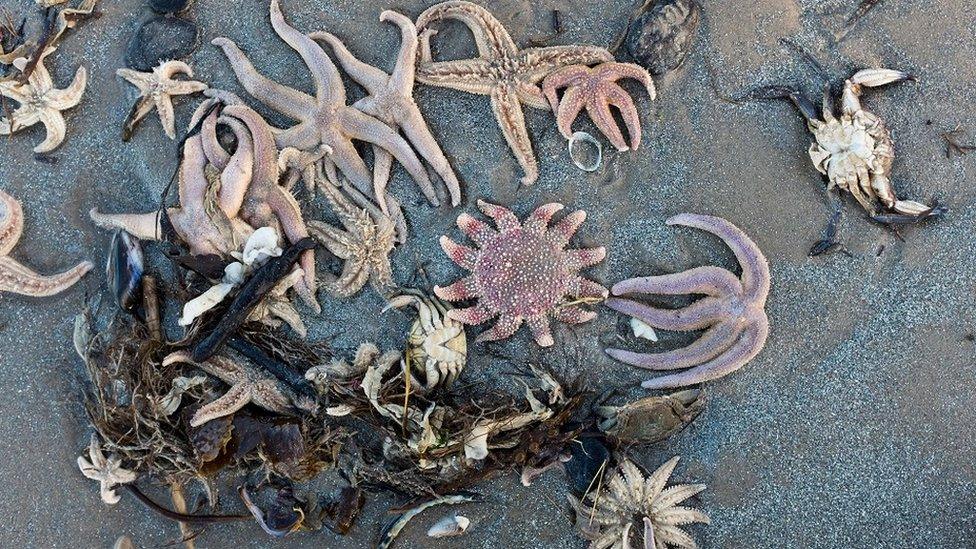
- Published19 June 2017
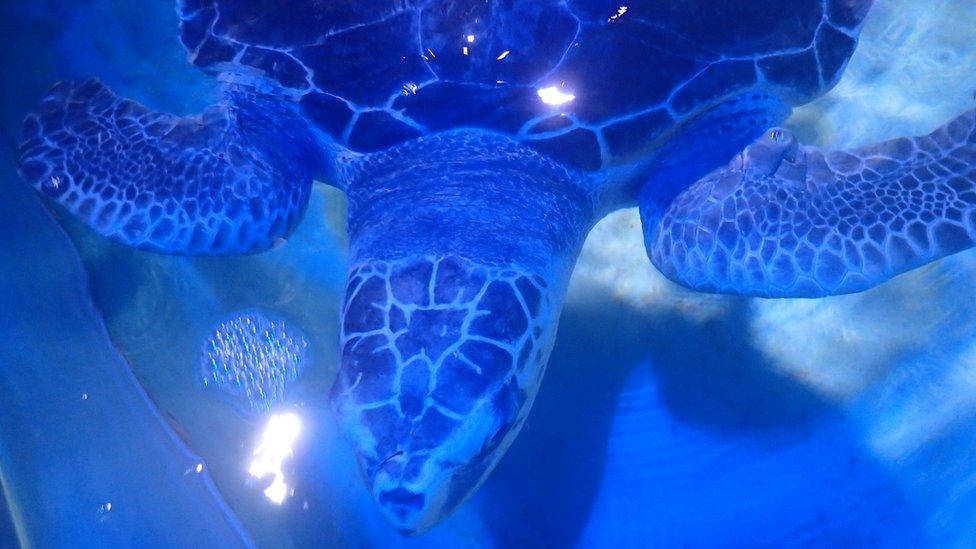
- Published29 November 2021
